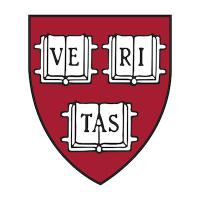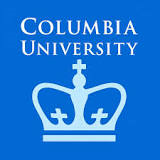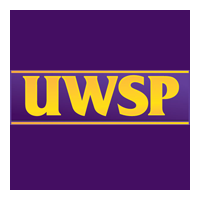What do they do?
Manage, improve, and protect natural resources to maximize their use without damaging the environment. May conduct soil surveys and develop plans to eliminate soil erosion or to protect rangelands. May instruct farmers, agricultural production managers, or ranchers in best ways to use crop rotation, contour plowing, or terracing to conserve soil and water; in the number and kind of livestock and forage plants best suited to particular ranges; and in range and farm improvements, such as fencing and reservoirs for stock watering.
Also known as:
Conservationist, Environmental Analyst, Environmental Quality Scientist, Erosion Control Specialist, Land Reclamation Specialist, Land Resource Specialist, Research Soil Scientist, Resource Conservation Specialist, Resource Conservationist, Soil Conservationist, Wetland Scientist
-
3.5%
Change
Ranks #41 in job growth rate80Job Openings
Ranks #12 in net job growth
-
SUNY College of Environmental Science and Forestry
Syracuse, NY
-
Harvard University
Cambridge, MA
-
Columbia University in the City of New York
New York, NY
-
University of Wisconsin-Stevens Point
Stevens Point, WI
-
Duke University
Durham, NC
Looking for colleges that offer a specific major? Use the College Match Tool to find your best-matched schools and discover your estimated Net Price!
- Doctorate or Professional Degree (3%)
- Master's degree (21%)
- Bachelor's degree (76%)
- Associate's degree (<1%)
- Some college, no degree (<1%)
- High school diploma equivalent (<1%)
- Less than high school diploma (<1%)
Most Popular Majors that prepare Conservation Scientists
-
#1
-
Degrees Granted
3,280
-
Female Students
2,038
-
Male Students
1,242
-
Median Starting Salary
$47,533
-
-
#2
-
Degrees Granted
2,778
-
Female Students
1,580
-
Male Students
1,198
-
Median Starting Salary
$47,400
-
-
#3
-
Degrees Granted
2,207
-
Female Students
1,174
-
Male Students
1,033
-
Median Starting Salary
$42,640
-
-
#4
-
Degrees Granted
999
-
Female Students
592
-
Male Students
407
-
Median Starting Salary
$42,090
-
-
#5
-
Degrees Granted
820
-
Female Students
280
-
Male Students
540
-
Median Starting Salary
$41,500
-
People in this career often have these skills:
- Reading Comprehension - Understanding written sentences and paragraphs in work-related documents.
- Active Listening - Giving full attention to what other people are saying, taking time to understand the points being made, asking questions as appropriate, and not interrupting at inappropriate times.
- Speaking - Talking to others to convey information effectively.
- Complex Problem Solving - Identifying complex problems and reviewing related information to develop and evaluate options and implement solutions.
- Writing - Communicating effectively in writing as appropriate for the needs of the audience.
- Science - Using scientific rules and methods to solve problems.
- Critical Thinking - Using logic and reasoning to identify the strengths and weaknesses of alternative solutions, conclusions, or approaches to problems.
People in this career often know a lot about:
- English Language - Knowledge of the structure and content of the English language including the meaning and spelling of words, rules of composition, and grammar.
- Biology - Knowledge of plant and animal organisms, their tissues, cells, functions, interdependencies, and interactions with each other and the environment.
- Mathematics - Knowledge of arithmetic, algebra, geometry, calculus, statistics, and their applications.
- Geography - Knowledge of principles and methods for describing the features of land, sea, and air masses, including their physical characteristics, locations, interrelationships, and distribution of plant, animal, and human life.
- Customer and Personal Service - Knowledge of principles and processes for providing customer and personal services. This includes customer needs assessment, meeting quality standards for services, and evaluation of customer satisfaction.
- Chemistry - Knowledge of the chemical composition, structure, and properties of substances and of the chemical processes and transformations that they undergo. This includes uses of chemicals and their interactions, danger signs, production techniques, and disposal methods.
- Law and Government - Knowledge of laws, legal codes, court procedures, precedents, government regulations, executive orders, agency rules, and the democratic political process.
- Computers and Electronics - Knowledge of circuit boards, processors, chips, electronic equipment, and computer hardware and software, including applications and programming.
People in this career often have talent in:
- Oral Comprehension - The ability to listen to and understand information and ideas presented through spoken words and sentences.
- Written Comprehension - The ability to read and understand information and ideas presented in writing.
- Oral Expression - The ability to communicate information and ideas in speaking so others will understand.
- Problem Sensitivity - The ability to tell when something is wrong or is likely to go wrong. It does not involve solving the problem, only recognizing that there is a problem.
- Deductive Reasoning - The ability to apply general rules to specific problems to produce answers that make sense.
- Information Ordering - The ability to arrange things or actions in a certain order or pattern according to a specific rule or set of rules (e.g., patterns of numbers, letters, words, pictures, mathematical operations).
- Written Expression - The ability to communicate information and ideas in writing so others will understand.
- Inductive Reasoning - The ability to combine pieces of information to form general rules or conclusions (includes finding a relationship among seemingly unrelated events).
- Speech Clarity - The ability to speak clearly so others can understand you.
- Category Flexibility - The ability to generate or use different sets of rules for combining or grouping things in different ways.
- Flexibility of Closure - The ability to identify or detect a known pattern (a figure, object, word, or sound) that is hidden in other distracting material.
- Near Vision - The ability to see details at close range (within a few feet of the observer).
- Speech Recognition - The ability to identify and understand the speech of another person.
People in this career often do these activities:
- Apply knowledge or research findings to address environmental problems.
- Plan natural resources conservation or restoration programs.
- Monitor operational procedures in technical environments to ensure conformance to standards.
- Advise others about land management or conservation.
- Develop plans to manage natural or renewable resources.
- Determine design criteria or specifications.
- Collect geographical or geological field data.
- Estimate green project costs.
- Develop collaborative relationships between departments or with external organizations.
- Inspect condition of natural environments.
- Train personnel in technical or scientific procedures.
- Advise others about environmental management or conservation.
- Record research or operational data.
- Research sustainable agricultural processes or practices.
- Plan environmental research.
- Direct natural resources management or conservation programs.
- Communicate with the public on environmental issues.
- Compile environmental or climatological data.
- Analyze environmental data.
- Review plans or proposals for environmental conservation.
- Create maps.
- Assess compliance with environmental laws.
- Review environmental permits, plans, or reports.
- Mediate disputes.
This page includes data from:

 Occupation statistics: USDOL U.S. Bureau of Labor Statistics Occupational Employment Statistics
Occupation statistics: USDOL U.S. Bureau of Labor Statistics Occupational Employment Statistics









